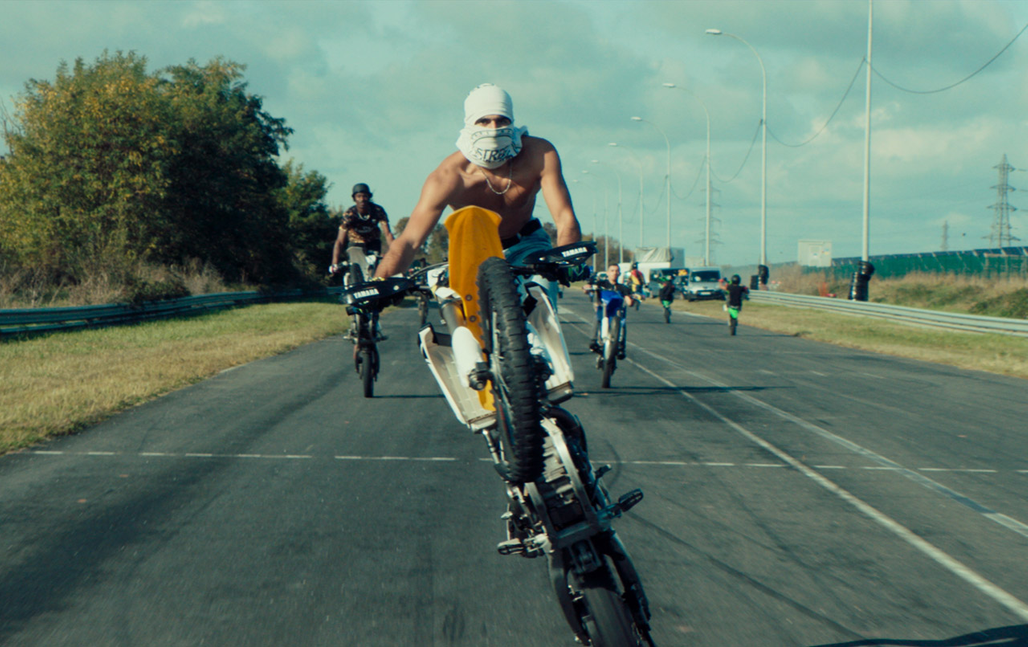
Rodeo, Lola Quivoron’s vision

One day, Julia, a young misfit who loves riding motorbikes, meets a group of boys who take part in urban rodeos and little by little finds a place for herself in this world that is as masculine as it is clandestine. After distinguishing herself with structurally daring short films, Lola Quivoron has, with Rodeo, given us her first feature film, one that is free and fearless, like a throbbing engine.
What was the starting point for your film?
It’s a film that was long in coming, written over almost five years. It started with my discovery of the world of urban rodeo riding in the middle of the 2010s. I constantly visited this environment and documented it, with clips, short films and photo reports. I wrote different versions of a story that changed a lot but where the central aspect was always this world, and the idea of infiltration: an outsider to the world of urban rodeos who discovers how it works. The writing then started to flow easily two years ago after my meeting with Julie Ledru, the heroine of the film and the person who inspired the story.
What was shooting like?
The atmosphere of the shoot was like the young people I film and who inspired me: intense, electric, free, joyous and fearless. Shooting a first feature film in these conditions, on this subject, turned out to be something of a crazy challenge. There were accidents, interruptions to filming, constant bad weather. But everything held together because there was, among everyone involved, both in front of and behind the camera, a very strong desire and belief. The film owes a lot to their recklessness.
What would you like us to take from your film?
New bodies and faces, an energy, flames, and above all: the pavement.
What films inspired you?
There were a lot of films that functioned as friends and accompanied the writing of Rodeo, films where it's a question of fury… Nicholas Ray's Rebel without a Cause (1955), Jean-Claude Brisseau's Sound and Fury (De Bruit et de Fureur) (1988), and Raoul Walsh's White Heat (1949).
Can you tell us about your next project?
I have an idea that still needs to be refined but for which I have a lot of desire. It's a period picture with an autobiographical inspiration, focused on an important figure from my family. A film that flirts with the crime genre but which I want to approach with the same energy as Rodeo.


